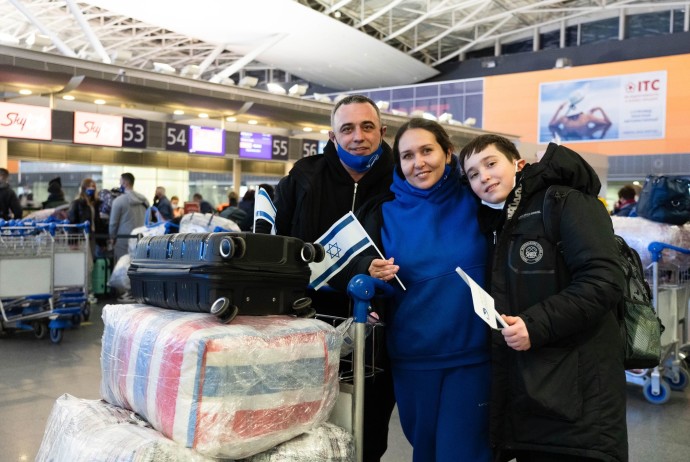As Zvika Klein has reported in these pages, expectations are that possibly tens of thousands of Ukrainian Jews will apply to make Aliyah and move to Israel in the coming months. Hundreds of additional applications have already been received from Russia as well where many Jews fear the repercussions of the continued war on the economy and their personal freedom.
For many, this period in time is reminiscent of the late 1980s when then-prime minister Yitzchak Shamir accurately predicted the opportunity the fall of the Soviet Union presented Israel and mobilized the country to facilitate the arrival of approximately 1 million Olim in the years to follow.
That immigration wave changed Israel for the better. It reinforced the value of Israel’s existence as a Jewish homeland, it brought skilled workers to the country which helped grow the local hi-tech industry and it also bolstered the Jewish majority in the country, forever a challenge in this region.
Some of the stories playing out right now are harrowing. Gil Hoffman spent time this past week along the Moldovan-Ukrainian border where he met some Jewish refugees en route to Israel.
One refugee was 89-year-old Ana Galanichka of Vinnytsia, Ukraine, who recalled escaping Nazi Germany as a child and once again is on the run. Speaking at a shelter in Dacia Marin, Moldova, organized by the International Fellowship of Christians and Jews and the American Jewish Joint Distribution Committee, she said she had the same feelings of fear she did back then.

"I fled the Nazis, and now I am fleeing the Russians," she lamented "No one believed the Russians would do such a thing until the last minute when it happened."
According to most estimates, in Ukraine today there are approximately 200,000 people who are eligible to immigrate to Israel under the Law of Return. In Russia, estimates range between 400-500 thousand.
Government officials claim that one of the reasons they are so careful in the language they use to describe the war and in their condemnations of Vladimir Putin and Russia is that they do not want to give him a reason to make life difficult for Jews and then ban them from emigrating and moving to Israel.
This might be true, but the government does not seem to have a clear and strategic plan in place for how to get the Jews out of Ukraine and to Israel.
While the Foreign Ministry is working commendably along the borders with Ukraine - together with the Jewish Agency, the IFCJ and the JDC - almost all of the representatives have left Ukraine. This means that if a Ukrainian eligible for Aliyah wants to move to Israel, he or she first has to find a way to the border, then identify themselves to one of the groups or Foreign Ministry officials and then begin the bureaucratic process to be allowed into the Jewish state.
The government has thankfully taken some steps aimed at making the acclimation to Israel easier.
Immigration and Integration Minister Pnina Tamano-Shata and Interior Minister Ayelet Shaked agreed to ease the application process and exempt Ukrainians from having to provide some documents that usually take weeks to receive.
Tamano-Shata has also ordered her ministry to recognize Olim from Ukraine as immigrants escaping a war zone, thereby making them eligible to receive a larger government Aliyah grant. A single oleh will now receive NIS 6,000, a couple NIS 11,000 and a family NIS 15,000.
Prime Minister Naftali Bennett should study the way Shamir organized the mass Aliyah from the former Soviet Union just over 30 years ago and replicate the steps that were successful.
One obstacle is the lack of Israeli representatives in Ukraine. The Jewish Agency, Foreign Ministry and even Nativ – an organization that specializes in Aliyah from former Soviet countries – have mostly left Ukraine due to the fighting. It is obviously dangerous and understandable.
On the other hand, Israel has an opportunity that it should do everything it can not to miss. The country has helped Jews make Aliyah in the past from dangerous countries, including ones with which it was at war. Now is that time once again.
